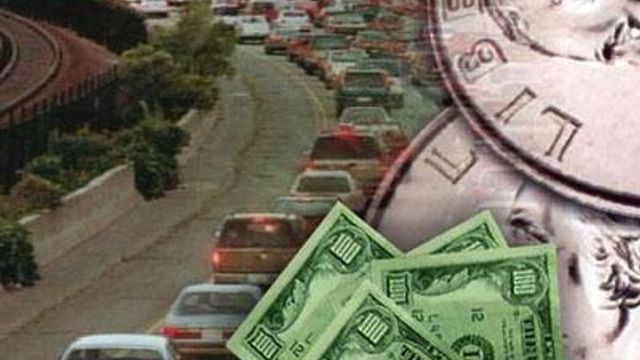Traffic
Lifting gas-tax cap could help DOT funding woes
DOT officials say the state could save an estimated $412 million next year by removing the cap on the state's gas tax.
Posted — UpdatedRALEIGH, N.C. — North Carolina transportation officials say removing the cap on the state's gas tax could help a projected shortfall this coming year.
Mark Foster, the Department of Transportation's chief financial officer, says the state agency lost $179 million over the past two years because of the cap.
Its projected loss for this budget year is $412 million, he said.
"A bridge replacement probably costs $2 million. That's a lot of bridges we could have repaired or replaced with that $400 million," Foster said.
About 75 percent of the gas tax goes directly to the state highway fund for road and bridge maintenance as well as repair and preservation. The remaining portion goes for new construction.
Without the extra revenue, Foster says the DOT is forced to absorb construction costs, which have doubled in the past six years.
Without the cap, which is set to expire in July 2009, the DOT says it would have collected an additional 5 cents a gallon during the first half of this year and 10 cents more during the second half.
"Obviously, none of us want to pay more, but the reality is without that money to repair our roads and keep our roads safe, we all suffer," Foster said.
North Carolina's gas tax is 29.9 cents per gallon – 12 cents above the national average, and other charges are added to that. A portion of the tax is a flat rate and another portion depends on the wholesale price of gasoline. The cap limits the total tax per gallon to 30.15 cents.
Foster acknowledges the gas tax is higher than other states, but says motorists are actually taxed less because there are fewer fees and other taxes that go to funding transportation needs.
"When you take into consideration all the revenue sources that we collect, we're actually one of the lowest," he said.
The DOT is projecting an 11 percent to 12 percent budget shortfall for the next fiscal year, and Foster says a $900 million to $1 billion shortfall is possible in the state's three-year spending plan.
The statewide 21st Century Transportation Committee – charged by the governor to reduce congestion and improve efficiency – is expected to submit its funding recommendations next month to the General Assembly.
Among the options it has before it is removing the gas tax cap, increasing vehicle registration fees and taxes associated with buying vehicles and implementing an annual fee based on the number of miles traveled.
• Credits
Copyright 2024 by Capitol Broadcasting Company. All rights reserved. This material may not be published, broadcast, rewritten or redistributed.






